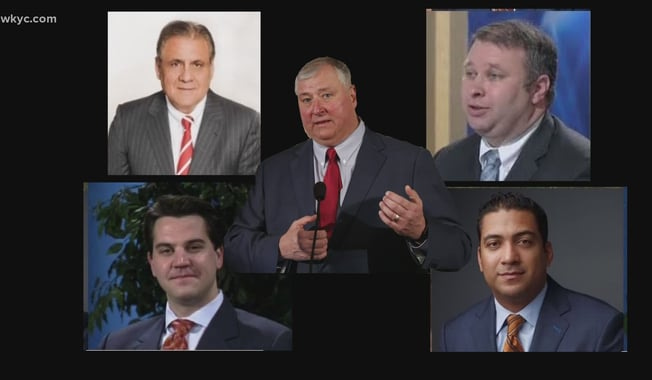Precinct Strategy and the Need for Principle-Based Reform in the Ohio GOP
A precinct strategy to take over a party from the entrenched establishment with no goals - historically leaves parties as bad off as what they were before the takeover.
Folks, let’s talk about something a bit less dirty than our national politics —political reform within our local Republican precincts. You know, the kind where you’re not just pulling a name out of a hat and filling a seat but genuinely setting the stage for meaningful changes within a corrupt party that no longer represents the will of the people. Think of it less like swapping out an old air filter and more like rebuilding the engine so it doesn't spew out the same old smoke.
As we delve into the intricacies of Republican precinct strategy, it's imperative to understand that this is more than just filling seats on a central committee. It’s about ensuring that the people filling those seats contribute to genuine reform within the party, steering clear of the historic pitfalls that have plagued past reform efforts. The most significant of these pitfalls is the replacement of one authoritarian figure with another more benevolent authoritarian figure, which essentially swaps one form of dictatorship for another without addressing the underlying issues.
Now, if you've ever tried to fix something that's seriously broken, you know that slapping duct tape on it and calling it a day isn’t going to hold. Same goes for reforming your local or State Central Committee. We can't just swap out one bigwig for another and expect things to get better. We should not be pleased to replace a dictator with a dictator. What we need is a clear roadmap, a solid plan that goes beyond the personalities and dives into principles.
To avoid such failures, we need a clear vision for reform before we even begin the process of filling committee seats. This vision must be centered on principles, not personalities. Without a principled foundation, the likelihood of meaningful change diminishes greatly. It's crucial that the objectives of reform are not trivialized; they are the bedrock upon which successful restructuring can be built.
Start with the rulebook—our bylaws. Now, I know there's a charm in keeping things simple, like just using a short rulebook and Roberts Rules of Order to run the show. But let me tell you, that's like trying to run a farm with nothing but an old shovel and good intentions. Roberts is a hefty lift, sure, but it’s mostly about keeping meetings from turning into barroom brawls; it doesn’t tackle the nitty-gritty of committee management.
Moreover, in an environment where entrenched establishment leaders may not have considered the numerous ways to disenfranchise central committee members and their constituents, their legal teams most certainly have. This is why bylaws should not merely be about governance; they should also include checks and balances to curb any power hungry leadership that might veer out of control.
Think of your bylaws like the Constitution. Yep, that big old document that's been guiding the whole country. It’s not just a bunch of suggestions; it’s the law of the land. Your bylaws should be the foundation of how things run. They need to cover everything from governance, members' rights, transparency, to discipline—make sure nobody can just waltz in and start calling all the shots without a check or balance.
A robust set of bylaws should ideally feature "Articles of Governance," "Articles of Central Committee Member Rights," "Articles of Registered Republican Rights," "Articles of Ethics and Transparency," "Articles of Discipline and Penalties," and "Articles of Necessity." These articles collectively ensure that the bylaws are treated as binding laws, with very few provisions that can be suspended. If a bylaw can be suspended at any time, then it isn’t a bylaw—it's a suggestion.
As reformers, our fight must be reminiscent of our founding fathers' struggle—not to elect our own king but to change the system and demand political rights, ensuring the party reflects the will of the people.
Remember, absolute power corrupts absolutely—ain't that the truth? And more often than not, it’s not changing the person at the top that makes the ripple; it's changing the system. Our founding fathers didn’t throw a tea party just for fun; they were setting the stage for a system that reflects the will of the people, not just the will of the guy with the fanciest hat.
Here in Ohio, and honestly, many other places across our great nation, our GOP central committees could really use this mindset shift. We need to demand political rights and a system that actually reflects what our members and constituents want, not just what keeps the old guard comfortable.
So, as we roll up our sleeves to tackle this, remember, it’s about more than just filling seats. It’s about crafting a committee that's built on sturdy principles, not just the personalities that often dominate the room. Need help? Jon Paul Morrow and Associates are ready to dig in with you. Let’s not just change the leader; let’s change the system. And hey, who knows? Maybe we’ll get a little dirty along the way, but that’s part of the fun, right?



